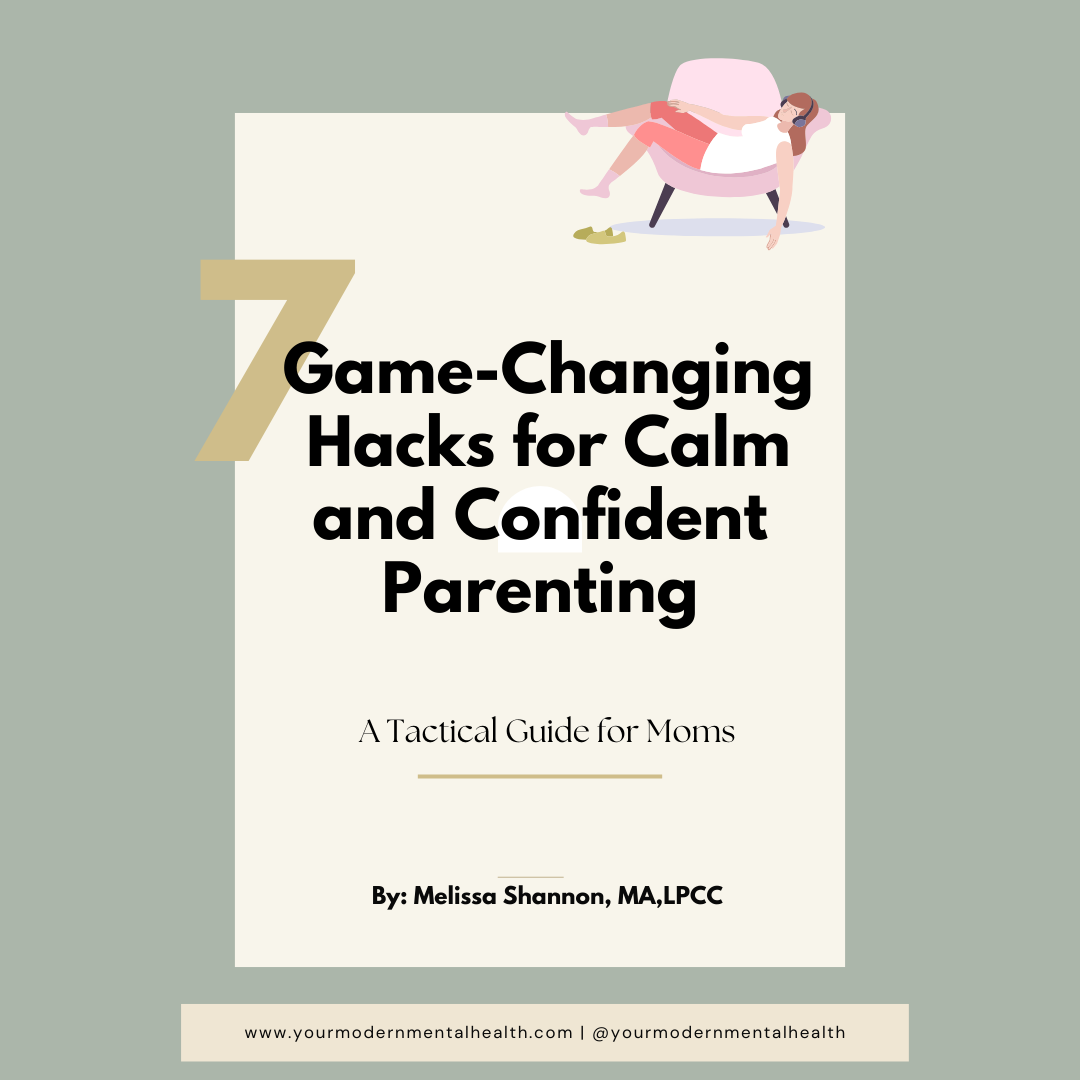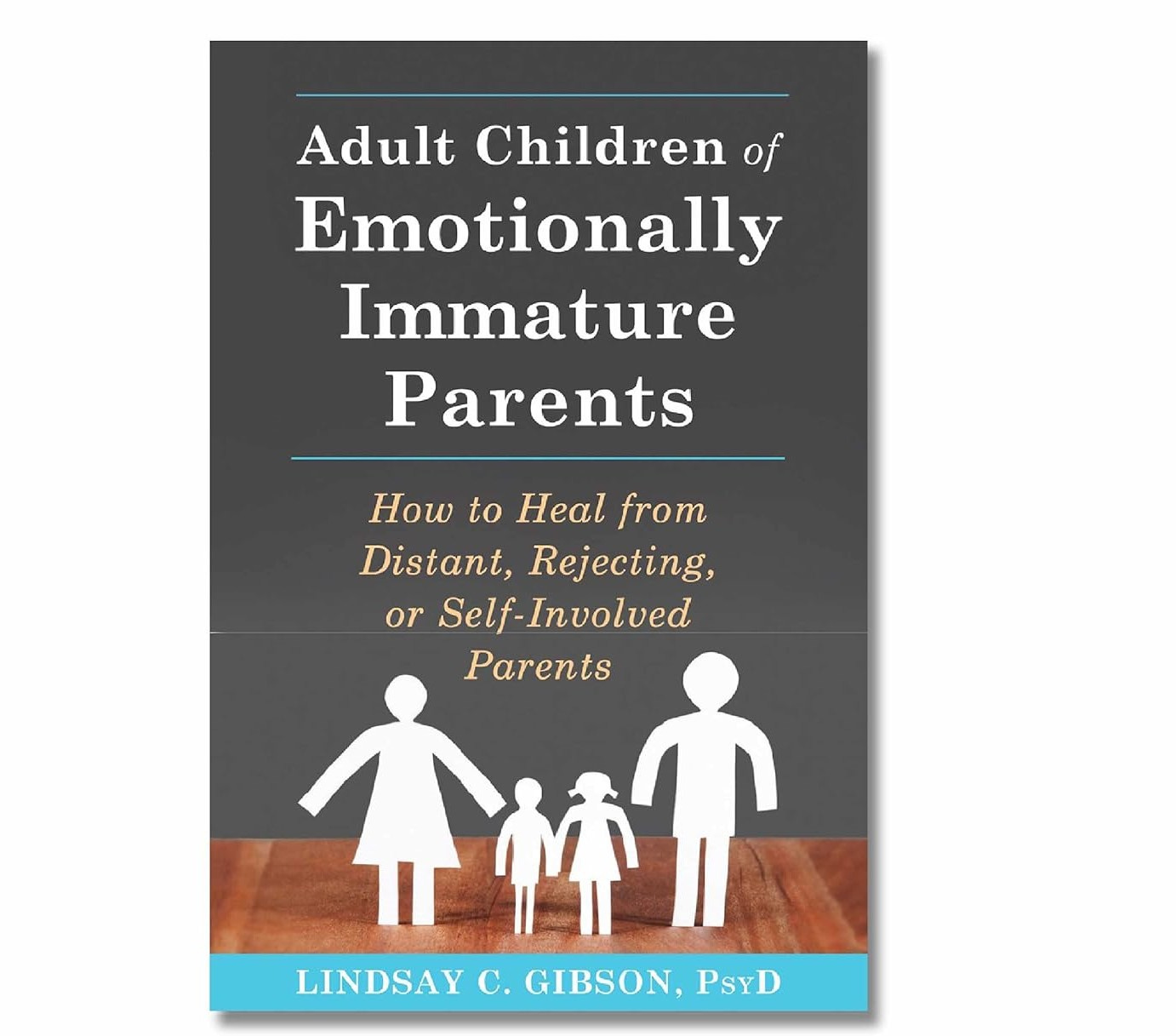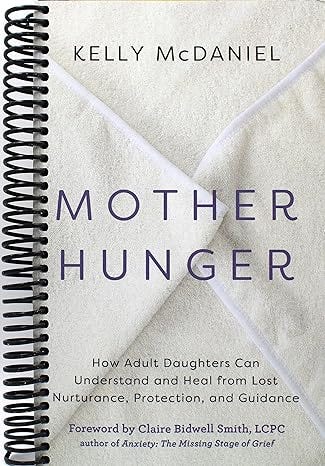Breaking the Mother Wound Cycle
In the last two newsletters I wrote about why some mothers hurt their daughters and how the characteristics of a hurtful and damaging relationship are normalized to a daughter. In this third and last newsletter on the topic I’m going to outline how this cycle of passing along the mother wound can happen, what grieving and healing may look like, and how to make space for this kind of mother when she is still very much in your life.
First and foremost, as an adult daughter you must accept as truth that you have no power to heal your mother and it isn’t your responsibility to resolve the original trauma that continues to influence and shape her behavior and views. This, I know, directly contradicts what you’ve been conditioned to believe, which is that making her feel better is your responsibility. Pressuring your mom to change doesn’t work.
Breaking the Cycle
Breaking the cycle comes in two forms, first as you, the adult daughter. And second, as you the mother, should you become a mother yourself.
Being Assertive and Firm
Learning to stand firm for yourself and asserting your needs, not taking the bait in your mom’s attempts to pull you into her drama and tantrums, and not getting shamed back into submission is how you begin to break this cycle and tend to your own inner child. When you do this, you differentiate yourself from your mother and allow yourself to see yourself as separate from her.
Release Yourself From the Responsibility to Heal Her
Despite what you’ve been tasked with likely your whole life, only your mom is the one who is capable of healing herself. She has to have the capacity, motivation and willingness to heal. That isn’t something you can or should have to do for her, even if you think you can. You may be an adult, but you are still her child.
Accept What She Is…and Isn’t
Accepting your mom for who she is and whatever level of connection she is capable of is an integral part of healing your wound and stopping this cycle from continuing. And to be clear, this requires grieving the relationship that could have been. But with time, you can eventually accept whatever level of connection is possible. For many women this connection is usually more superficial and shallow than they long for, but this is something you have to accept in order to be able to set boundaries and make sure you aren’t passing this wound along to your own children. It’s worth noting that this acceptance may lead you to needing to go little to no contact with your mom for the sake of your physical or mental health. That is okay and a process worth exploring if necessary.
Befriend and Heal Your Inner Child
While your mom’s damaged inner child is the one who has been harming yours, your ability to meet the needs of your inner child as an adult is one of the most powerful ways you can break this cycle so that you don’t pass along this wound. By healing this part of yourself, you are closing the gap and maturing a part of yourself that has the capability to be destructive not only to yourself but to your children as well. The more your inner child feels tended to and cared for, the more emotionally mature and available you’ll be for your own kids.
Be Your Own Mother
If your happy ending isn’t coming in the form of a mom who has pulled a 180 and engaged in her own healing journey, your healing may look like becoming your own mother. Young daughters learn how to treat ourselves the way we saw our mothers treat themselves. By becoming our own “inner mother”, we can give ourselves a chance to create a mother we always wanted and needed, but without the limitations. You’re better able to meet your unique needs and unconditionally support and nurture yourself, which ironically allows you to grieve and find compassion for your own mother. You can become the mom you always wanted for yourself.
Handling a Toxic Mom
There really are just two options- going no contact or keeping her in your life with your own internal boundaries that protect your sanity and well being.
No Contact
For many daughters, this feels like the only way to protect their mental and physical well being and when your mother is emotionally, verbally and/or physically abusive, stepping away and going no contact is typically the necessary step. Most find the optics and what to say when people ask about your family dynamics to be the hardest thing to navigate one you’ve made the decision to engage in an estrangement, but other than that, the space and separation may be the best thing you could do for yourself.
Always Have a Plan
Any time you’re engaging with your mom you need to have a plan for how you will handle it. This looks like preparing and practicing statements for how you’ll end conversations, how you’ll get off the phone quickly, how to leave meals or outings and essentially have strategies that get you out of harm’s way quickly. It may sound like:
“I have to go now Mom, I’ll call you on Friday.”
“We’ll just agree to disagree.”
“I hear you, anyway, how’s the weather?”
“I already answered that, if you ask me again I’ll need to get off the phone.”
Don’t Overshare
As hard it may be to not share good news about your life or the things that are happening for you, emotionally immature mothers struggle to genuinely share in your joy and subconsciously perceive it as a threat to their safety and well being. Share the minimum and adopt a “need to know basis” attitude when it comes to what you share with her.
No Need to Apologize and Don’t Expect an Apology
You’ve probably spent your whole life apologizing for simply existing and saying ‘I’m sorry’ is likely so routine to you that you aren’t even sure what you’re apologizing for. But expecting her to apologize to you is only setting you up for failure and disappointment because the apology likely isn’t ever coming. Your mom likely doesn’t see herself as wrong or her behavior as a problem; she probably thinks she’s the victim, not you.
Set and Enforce Boundaries…Without Guilt!
Remember that boundaries are kind, boundaries do not make you a bitch. I don’t have one healthy relationship in my life that isn’t chock full of boundaries. Boundaries are something we don’t inherently know how to implement as children, in fact we’re born completely boundary-less! We learn how to set boundaries for ourselves by watching our caretakers, typically our moms, set and hold boundaries for themselves. If you have a toxic mom this explains why boundaries may be really hard for you. Keep in mind that boundaries aren't asking the other person to do anything differently and they aren’t an attempt to control anyone. They simply let the other person know what you’ll do when they behave in a certain way.
“Mom if you bring up my weight again, I’m not going out to dinner with you anymore.”
“When I told them to turn off their ipads and you told them they could keep watching them, you undermine my parenting. If you do that again I will have to rethink your visits with the kids at my house.”
"I’m sorry you think no one loves you, that’s hard. I love you. Do you want to see a video from _____’s baseball game yesterday? He hit two singles!”
Don’t Torture Yourself with Comparsion
Comparing your mom and how she shows up in your life to your friends’ moms and the relationships they have is a recipe for disaster. This will only serve as a reminder, especially on holidays or special days, that you don’t have the kind of mom or relationship that you long for and deserve. I always like to remind clients who experience this that it will never be fair to you that this is your reality and there is nothing you’ve done to deserve this. And comparing your situation to friends who have lucked into far better circumstances only deepens your pain.
Making Sure You Don’t Become a Toxic Mom
Whether or not you have an emotionally immature mom who hasn’t been able to meet your needs, most of us who are mothers are anxious and fearful that we will become one a troublesome mom to our child without even realizing it. We’re afraid that we’ll damage our kids beyond repair and it’ll be too late once we figure it out.
And the reality is you will absolutely not meet ALL of your child’s needs in their childhood because they will still be developing and discovering their needs long after they are no longer under your roof. That is not the same thing as being a toxic and emotionally abusive mom who doesn’t mee the core, fundamental needs of her child in their formative years. As a mother, it is our duty to provide our children with:
-unconditional love
-guidance
-nurturance,
-protection
Not perfectly, but consistently and most of the time. That doesn’t mean you never yell, lose your cool, invalidate their feelings or miss the mark. But if you focus on those four basic pillars, odds are you will not plague their childhood with toxicity.
And most importantly, if you take away nothing else, do not look to your kids to meet your needs for you. Good outcomes for children hinge largely on the quality of the relationship that parents, particularly their mothers, have with themselves. The better you are able to take responsibility for meeting your own needs, mothering yourself, and taking accountability for your own emotions the better the long term.
The better you become at mothering yourself, the less responsibility you place on your children to fill voids and take on roles that they simply should not and cannot be expected to.
“Respecting children means understanding their stage of development, not reacting to their age-appropriate behavior as if they are our peers.”
-Janet Lansbury
If you didn’t get the chance to be a kid when you were a kid, this can make parts of motherhood incredibly triggering. But it’s our responsibility as adults to respect a child’s developmental limitations and not pass on what we were robbed of to the next generation. That’s how we stop the cycle and heal, both as adult daughters and mothers.
I hope this series was helpful and feel free to reach out with any questions or follow up.
Melissa
Other Resources:
The Modern Mom’s Guide to Reparenting
7 Game-Changing Hacks for Calm and Confident Parenting









